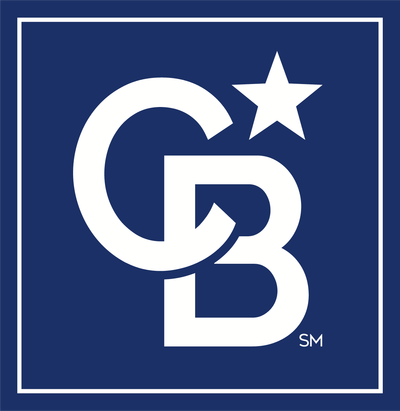Becoming A Costa Rican Resident- A Step-by-Step Look at the Process
Today we took the first step to becoming Costa Rican Residents. Some of you may be surprised to hear this, since we have been living here for much of the year for 6 years now.
So, why did we wait? The decision was prompted by a few different items. The main one being that when we arrived and first discussed whether or not residency was something that would benefit our lifestyle- we learned that changes to the Investor Residency Program were in the works.
We did our research and learned that the changes would definitely be of benefit to us. Those benefits included:
- a lower minimum investment amount
- the ability to import 2 vehicles duty-free
- the ability to bring in more household goods
- a longer period between renewals
Since, at the time, we still had vehicles in Canada, we decided to wait for the new program to become active. Since the wheels of government tend to roll pretty slowly here... it's been a long wait.
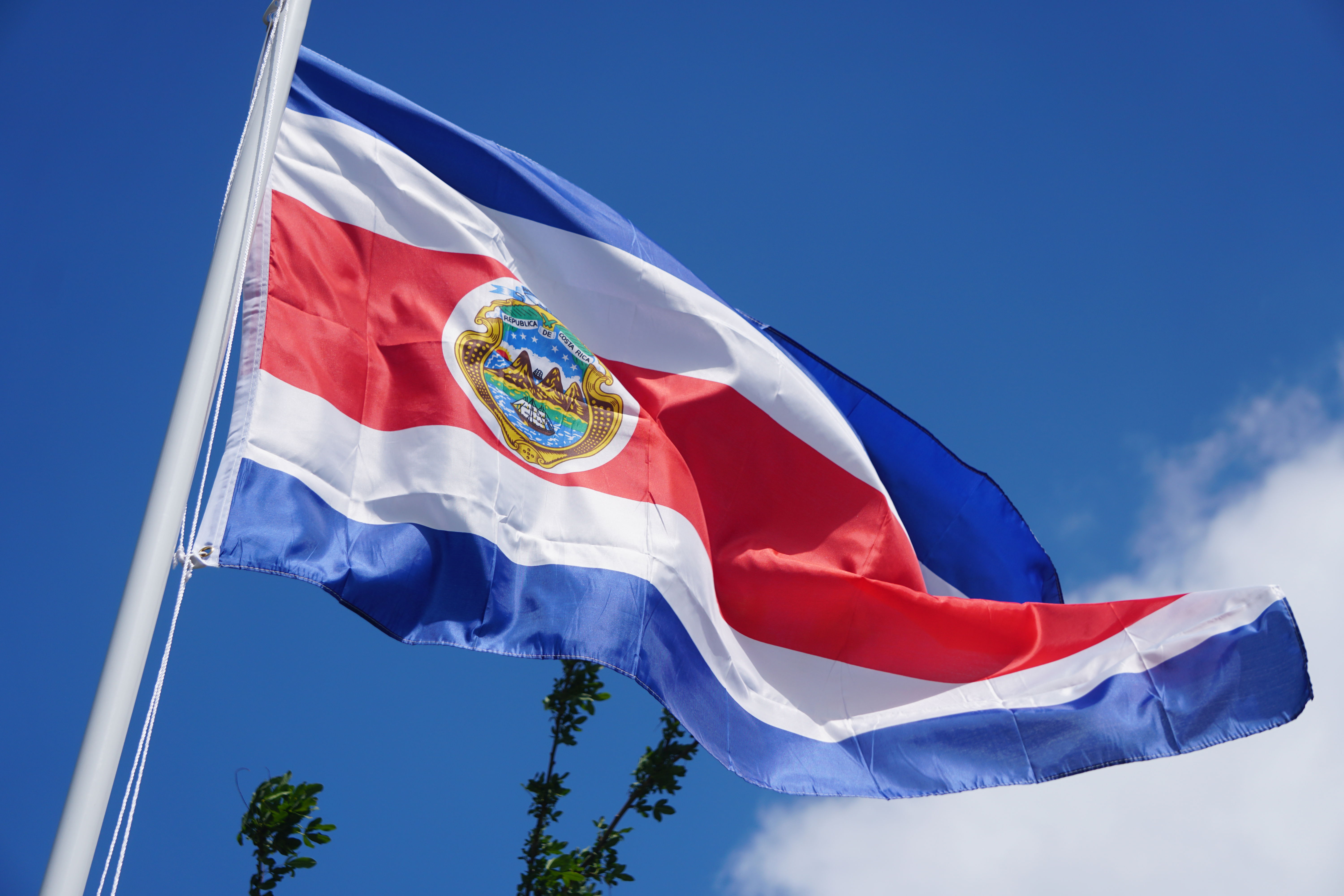
Now that it IS in place, we decided to revisit our decision about whether or not residency would benefit us. As Canadians, the need for the CAJA isn't all that appealing to us. It is good to be able to walk into a hospital when we need to, and not have to pay out of pocket. But for most major items, we still prefer the idea of flying back to Canada for medical care. Why? Because neither of us are proficient in Spanish, and when it comes to medical care- communication is key.
Since we get SO many questions from people, both as clients and as members of the Costa Rica FAQ for Expats and Dreamers (A Facebook group that we manage), we are going to document the process as we go through it.
I hope that doing so will remove some of the mystery and give you a very up-to-date knowledge of the process. We love that people in our group are quick to jump in and answer questions about the process for new members. The challenge lies in the fact that there are often changes in regulations that make their information obsolete- and that creates confusion.
So, what is the very first thing that we did once we made the decision to start the process?
Easy... we called up our friend Oscar.
Oscar Lopez- Lawyer Extraordinaire
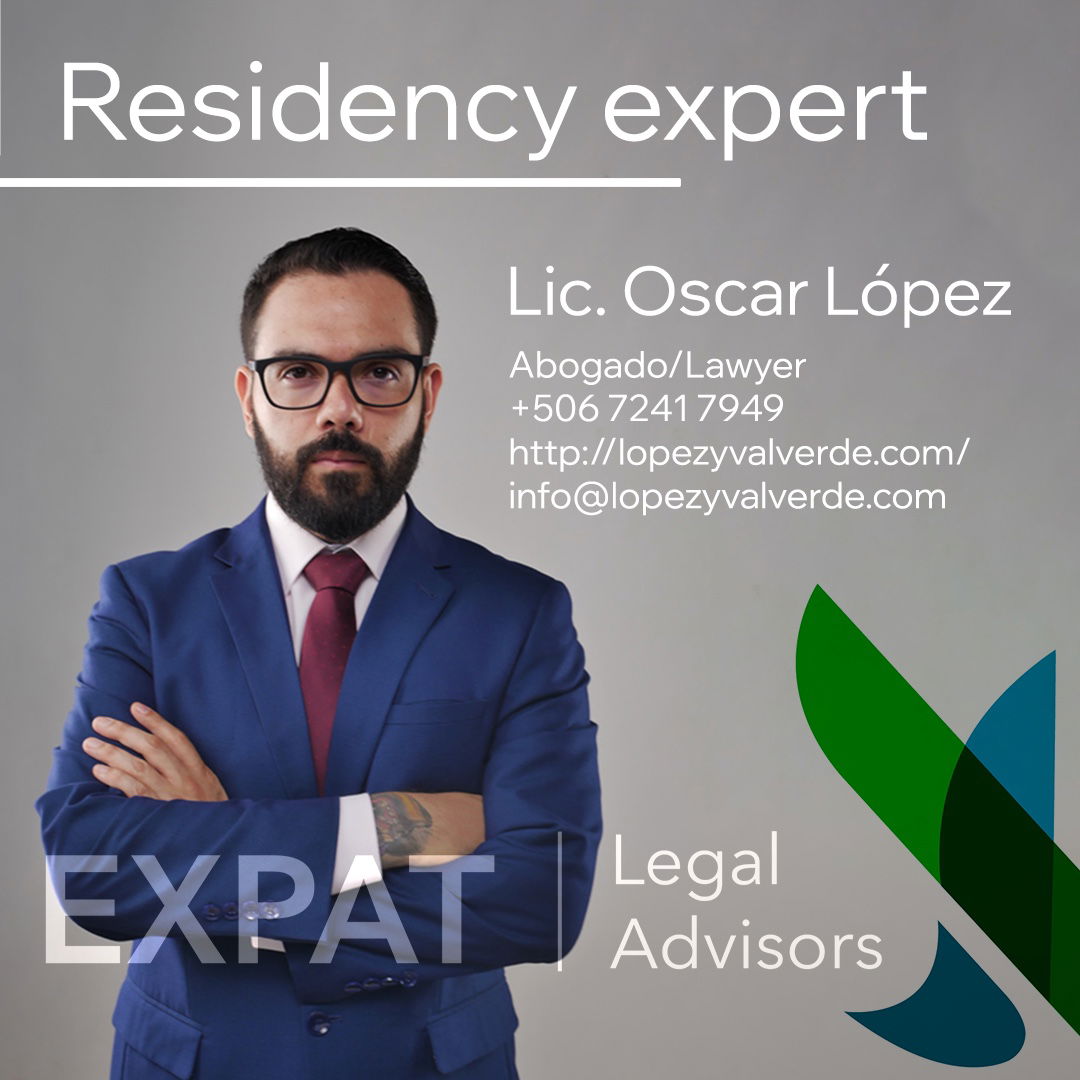
There is no one else that we would trust to walk us through the residency process and insure that we choose the right path along the way. Why, you may ask?
As a person, Oscar is easy to talk to, and more importantly- understand (he is Fluent in English). He takes the time to listen to us, discuss our concerns and understand our individual circumstances. He has no interest in offering us a cookie-cutter application and then charging us an arm and a leg for the privilege.
As people who work with and serve the public, we like to go out of our way to provide the best service- and we see the same attitude in him, so of course that appeals to us.
In terms of knowledge and experience, Oscar is/has:
- A certified attorney within the Costa Rican bar association
- Graduated with honors from the most respected private law school in Costa Rica (Universidad Escuela Libre de Derecho)
- Currently enrolled in 2 masters programs: public law in UCR (universidad de Costa Rica), and human rights (Universidad Internacional de la Rioja - Spain)
It is Oscar's goal to provide Expats, like us, with a trustworthy and reliable source for all things pertaining to immigration. And that's because he knows at the current time- getting your residency is a bit of a crap shoot. Not because the process is more confusing than anyplace else- simply because many of the people who offer help don't take the time or make the effort to simplify the process.
That's why he has specialized in public law. His practice is focused on administrative proceedings including immigration, municipal, public institutions matters.
Unlike most, he is actually taking it one step further. He has gathered a team of like-minded people and is working diligently to put together a website that will provide all the information people like us need.
From a comprehensive step-by-step explanation of the process, to a detailed listed of all the documents that you will need to amass BEFORE you start the process, so that nothing gets missed and everything goes smoothly.
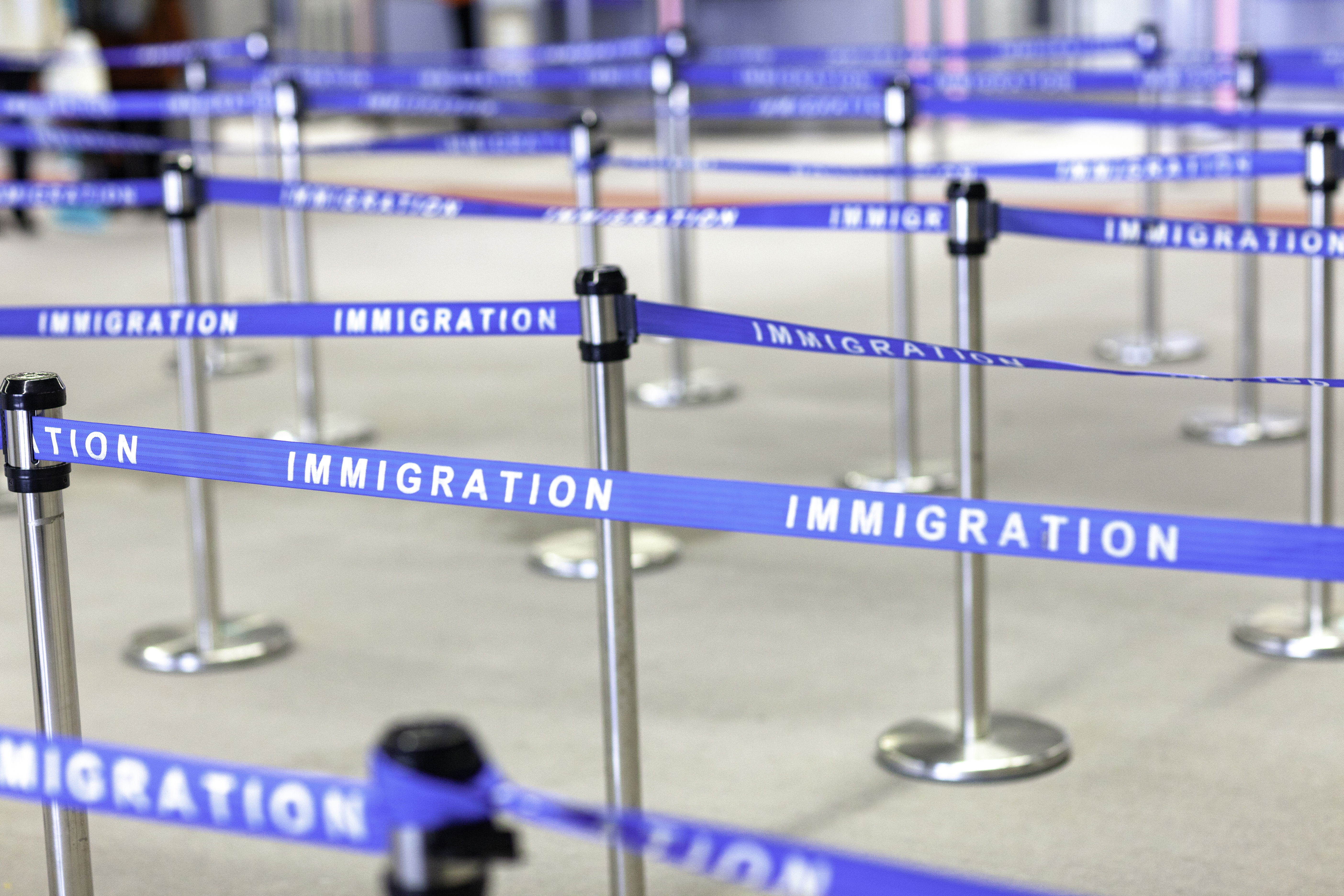
Meeting Number One
Now that you know why we chose Oscar, let's get back into the process itself. As I said earlier, today we took the first step and that step was in the form of a video call with Oscar.
It was really convenient because we had a lot going on today, and having to travel to his office would have made for added stress. Instead, we received an email with the meeting time and a Google Meet link. All we had to do was click the link (and remember to change out of our jammies).
This meeting was mostly a question-answer period so that Oscar could help us narrow down what type of residency would work best for us... and so that we could ask him any questions we had about the process and the costs.
Here are the types of questions that he asked, and a basic overview of our answers:
- What do you hope to gain by obtaining residency? We don't want to have to leave every 180 days to renew our visa stamp.
- What sort of income/assets do you have in your home country? Some retirement savings, and a small pension.
- Do you plan to purchase property or invest money in Costa Rica? We already have.
- Okay, what sort of assets do you have in Costa Rica? We have purchased a condo and a vehicle.
- Is the value of your combined investments over the minimum amount, which is $150,000 US? Yes.
- Have you already set up banking here in Costa Rica? Yes we have.
At this point he confirmed what we already suspected- that our best plan was to apply for the Investor Residency Program. He also took the time to explain why (namely that we had already made the minimum investment, and that all we would need to qualify is to provide proof to that effect.)

He also took a few minutes to tell us that the program had recently been updated, and to give us an updated list of the benefits of the program (which matched what we had already expected, and which I listed above).
At this point we asked about the CAJA, which is the socialized medical system. We already knew that as residents, we would need to pay into the program and that the amount would be based on our income.
He answered that there is no chart to let us know ahead of time what the monthly cost of our CAJA contribution would be, but that -as investors, we would not need to claim either the pension, or the savings. This fact will lessen the potential cost of the monthly CAJA contribution.
That had been a big concern for us, especially since the CAJA provides free medical care only through the local hospitals. With our language barrier, we are much more likely to go to CIMA in the city for any non-emergency medical care because more of the staff speak English. That means that we would be paying out of pocket for our care anyhow- so a big CAJA payment wouldn't make sense for us.

He did clarify something important, and something which I had heard a lot of varying answers for online. Firstly, you don't have to start paying the CAJA until your residency is approved (yay!) and secondly, until that time, you also have the option of stopping the process.
In other words, if we get to the end and find out they want us to pay $3000 a month in CAJA, we can simply stop the application and remain as Perpetual Tourists. That is definitely a comforting thought, and it was the deciding factor in our decision to go ahead with our residency application.
Next Steps
Having agreed to move forward with the Investor category residency, Oscar took a few minutes to explain to us which documents we would require in order to move forward.
He made sure that we understood that we would need all of the documents organized before the process began, and explained that in many cases, the main reason that applications drag on for years is that people don't realize that apostated documents have a time limit.
In other words, you can have all of your documents ready and apostate them in Canada and then bring them to CR where they will be translated for the application (Do NOT get them translated outside of CR!)... but if there is an error and you have to go back and fix it- there is a good chance that your documents will have expired by the time you get that done.
At that point you will need to go back and get apostate the documents all over again.
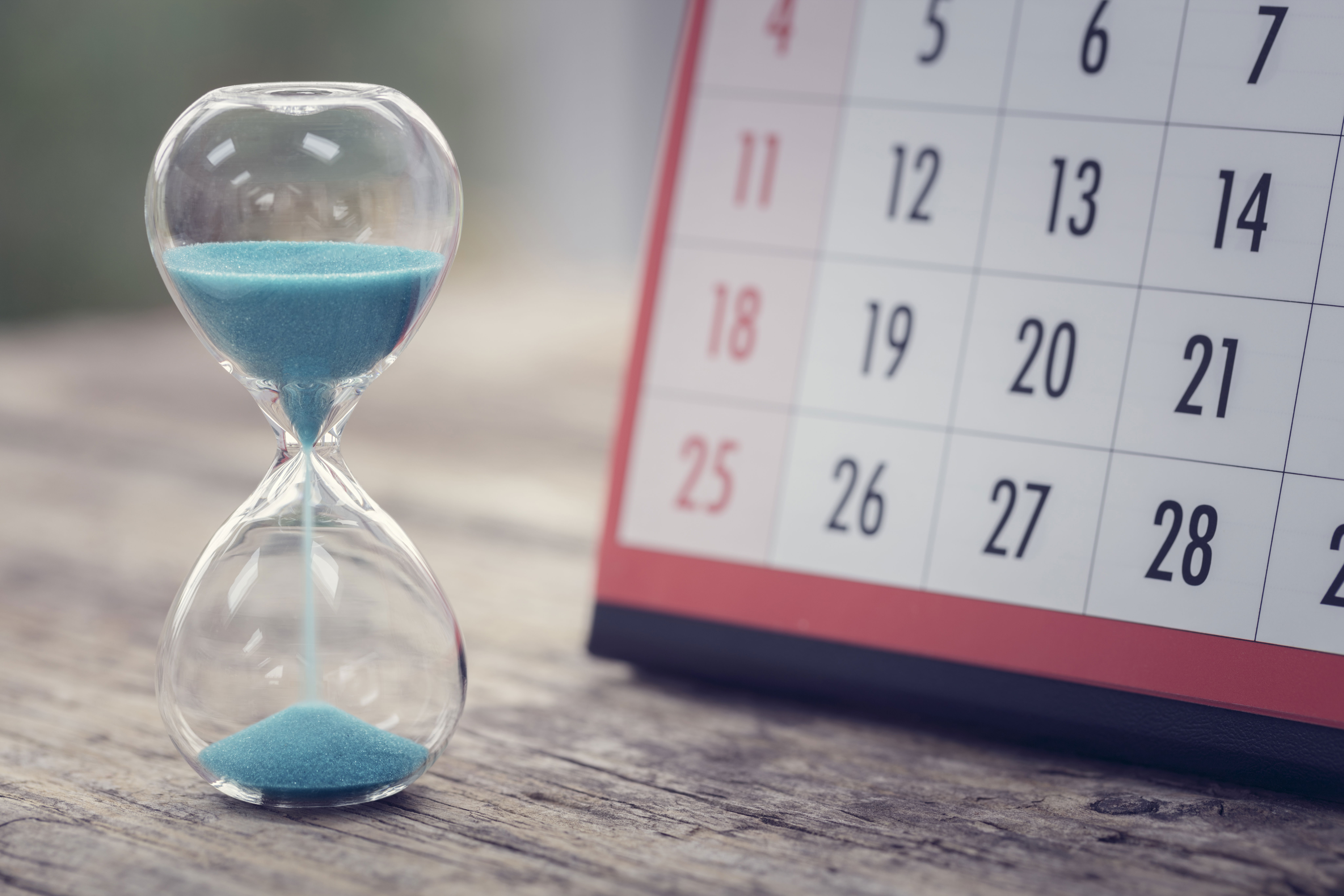
This is something we didn't know. I asked when the clock starts on the documents, and I was told that for all but the birth certificate, you have 6 months from the time of the apostate stamp. Good to know. My plan is to make sure that I collect all the documents together BEFORE I go to the Apostate for the stamps... and stamp them all at once.
Oscar informed me that he will be emailing me a list of all the documents that I would need, as well as some helpful links so that I know who to contact for each, and have resource where I can ask questions.
I will write a second post once I receive Oscar's email, and share this list with you. It may not be quite the same for my American friends, but fellow Canadians will have an idea what they will need to start the residency process as well.
For me, the big worry is the long-form birth certificate. I tried to apply for one a few years ago and the amount of detailed information that they asked was staggering. Like the name and address of the doctor who presided over my birth. I have no idea, and since my mother has dementia, she wasn't able to fill me in. I am hoping that the contact information will help me get in touch with a person who can help me over those hurdles.
For now, we are hopeful that the process goes smoothly. We are heading back home for a wedding next month, so it will be a good opportunity for us to collect some of the paperwork we need.
Stay tuned for the next installment in a week or so!
Until then,
Pura Vida!
